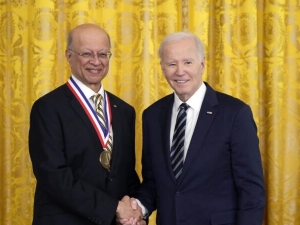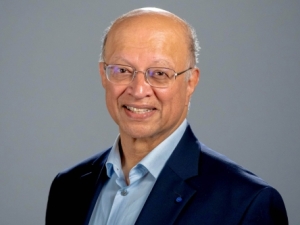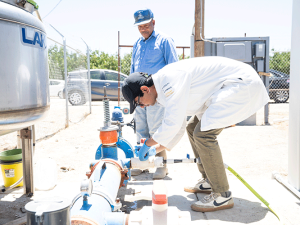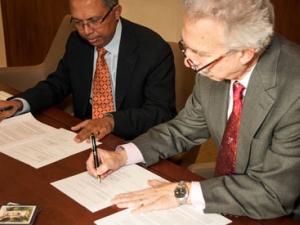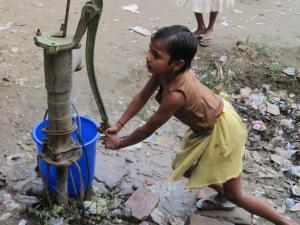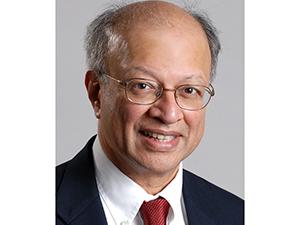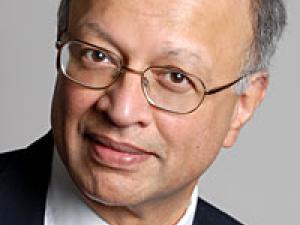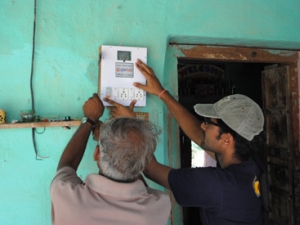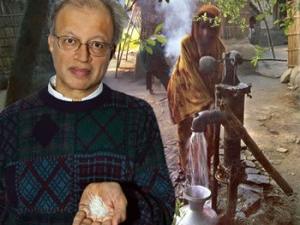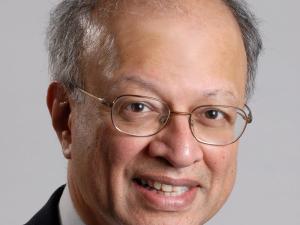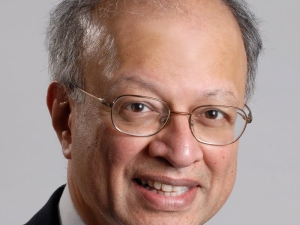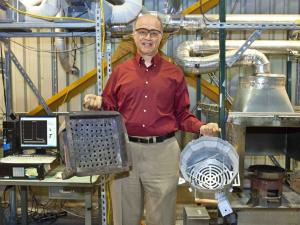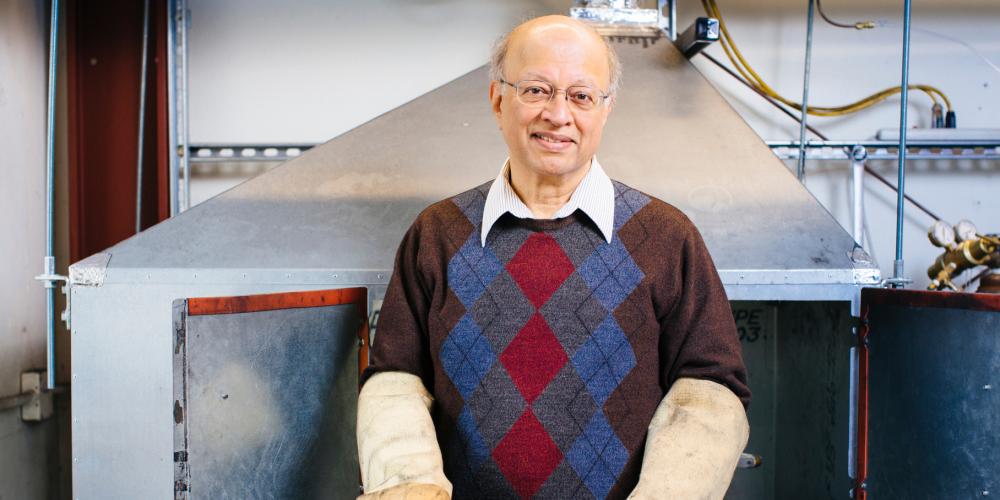

Research Bio
Safe and affordable drinking water for poor communities. This research includes research on remediation of arsenic in drinking water, controlling lead pipes leaching into drinking water, low-cost and highly effective methods to remove toxic Cr(VI) from drinking water, and UV-disinfection of drinking water to remove pathogens.
Since emergence of COVID-19 pandemic, the Gadgil research lab has worked to develop low-cost and effective method for developing country communities to make their own surface disinfecting solution (dilute HOCl), based on the chlor-alkali process.
Significant research effort for the past several years has been made to develop methods to reduce salinity of brackish water (of ~10,000 ppm) to make it available for societal use.
Fuel-efficient biomass stoves. This research includes development of novel designs of fuel-efficient, low-emission, low-cost biomass cookstoves that burn natural wood and use natural convection. Research on ways to reduce smoke emissions with injection of secondary air, and assessment of how such cookstoves may be built using market-available components. Also research on quantitative measurements of adoption and use of such stoves by users, to gain insights into what actually works in the field.
Energy efficiency in buildings. This research primarily was on heat transfer into and within buildings, and understanding interactions of heat transfer with thermal mass of the building to reduce (heating and cooling) energy use and maintain thermal comfort for occupants.
Indoor air quality. This research focuses on transport and fate of chemical (gas phase) and particulate (aerosol) contamination within indoor spaces, and transport from outdoor plumes to indoors. Research included ways to protect against radon entry into homes, and methods to protect occupants of civilian buildings from toxic outdoor plumes, and response strategies for sudden indoor releases of a toxic chemical gas.
Technologies for developing countries. This research and related activities led contributed to the emerging field of Development Engineering. This broadly encompasses technology solutions for often-dire problems of people in resource-limited settings, sometimes as poor as people in refugee camps, and also (somewhat better off) people in low-income communities around the world.
Research Expertise and Interest
drinking water, fuel-efficient stoves, indoor air quality, energy efficiency, developing countries, buildings energy efficiency
In the News
Ashok Gadgil Awarded National Medal of Technology and Innovation
Ashok Gadgil Recognized As 2023 R&D Leader of the Year
Bringing Arsenic-Safe Drinking Water to Rural California
The search for smarter energy and water strategies
Ashok Gadgil is refining an affordable water treatment technology to produce fresh drinking water from brackish water, one of many projects supported by CERC-WET.
DOE selects UC Berkeley to lead U.S.-China energy and water consortium
UC Berkeley, in partnership with UC Irvine and Lawrence Berkeley National Laboratory, was awarded a five-year, multi-million dollar international research consortium that tackles water-related aspects of energy production and use.
Bangladesh takes center stage with Subir and Malini Chowdhury Center
Bangladesh may be known mostly for its poverty, environmental vulnerability and deadly factory fires, but the new Subir and Malini Chowdhury Center for Bangladesh Studies at the University of California, Berkeley, is ready to prove that this South Asian country of over 160 million people has a lot more to teach the rest of the world.
Indian company licenses Berkeley Lab invention for arsenic-free water
Ashok Gadgil set out to solve an insidious public health problem afflicting South Asia, arsenic contamination of groundwater. He knew the hard part would not just be inventing the technology but also ensuring a way to sustain its long-term use on a large scale.
Ashok Gadgil inducted into National Inventors Hall of Fame
Dr. Ashok Gadgil is inducted into the National Inventors Hall of Fame (NIHF) for his water disinfecting device. The NIHF honors those who are responsible for the great technological advances that make human, social and economic progress possible.
Two UC Berkeley faculty members named to NAE
Two faculty members at the University of California, Berkeley, have been named to the National Academy of Engineering (NAE). Election to the NAE is considered one of the most prestigious professional distinctions accorded to an American engineer.
USAID invests up to $20 million in UC Berkeley’s global development initiatives
UC Berkeley’s leadership in developing innovative and practical solutions for global problems is being recognized in a $20 million cooperative agreement with the U.S. Agency for International Development (USAID).
Arsenic water filter recognized with international prize
A team led by Lawrence Berkeley National Lab (Berkeley Lab)’s Ashok Gadgil is the recipient of the 5th Prince Sultan Bin Abdulaziz International Prize for Water. Gadgil, head of the Lab’s Environmental Energy Technologies Division and a Professor of civil and environmental engineering at the University of California, Berkeley, will receive the Creativity Prize on behalf of the team.
Ashok Gadgil gets $100,000 award for global innovation
The Lemelson-MIT Program has awarded Ashok Gadgil, professor in the Department of Civil and Environmental Engineering, the 2012 $100,000 Lemelson-MIT Award for Global Innovation. The award recognizes Gadgil, who is known for his work on affordable water disinfection systems and fuel-efficient cookstoves for developing nations, for “his steady pursuit to blend research, invention and humanitarianism for broad social impact.”
Berkeley Lab to lead a U.S.-India clean energy research center
Lawrence Berkeley National Laboratory (Berkeley Lab) has been selected to lead a new joint U.S.-India research center focusing on energy efficiency technologies for buildings.
Berkeley Lab launches new institute to build low-carbon pathways to prosperity
To broaden and accelerate its efforts at poverty alleviation Berkeley Lab announces the launch of the LBNL Institute for Globally Transformative Technologies.
Berkeley Lab’s Ashok Gadgil Wins Zayed Future Energy Prize’s Lifetime Achievement Award
Ashok Gadgil, a scientist at Berkeley Lab, has won the Lifetime Achievement Award of the 2012 Zayed Future Energy Prize, a $3.5 million award that recognizes and rewards innovation, leadership and long-term vision in renewable energy and sustainability.
Panel discussion: Berkeley Lab’s 'Carbon Cycle 2.0 Big Questions'
Experts from around the Lawrence Berkeley Lab and beyond will come together to tackle some of the Big Questions facing scientists in areas relating to energy and climate, Tuesday, May 3, at 3 p.m.
MBA students, Haas School faculty win sustainability research grants
The Haas School of Business’s Center for Responsible Business made an Earth Day announcement today (Friday, April 22) that several MBA students and Haas School faculty have won research grants to work on innovative sustainability projects dealing with reinforcing friends’ healthy habits to green supply chains and clean water.

